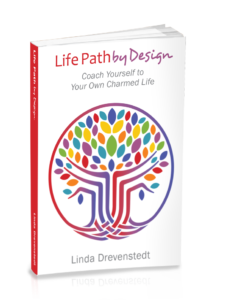
In Part One, I discussed the fairy tale falsehood that what you do or say and don’t do or say is the ultimate cause of another’s happiness. You take on the unrealistic expectation that your job is to make others “happy.”
This is never truer than with your adult children. ALSO, the reverse…
Your children are not your children.
They are the sons and daughters of Life’s longing for itself.
They come through you but not from you,
And though they are with you, yet they belong not to you.
You may give them your love but not your thoughts,
For they have their own thoughts.
You may house their bodies but not their souls,
For their souls dwell in the house of tomorrow, which you cannot visit, not even in your dreams.
You may strive to be like them, but seek not to make them like you.
For life goes not backward nor tarries with yesterday.
You are the bows from which your children as living arrows are sent forth.
The archer sees the mark upon the path of the infinite, and He bends you with His might that His arrows may go swift and far.
Let your bending in the archer’s hand be for gladness;
For even as He loves the arrow that flies, so He loves also the bow that is stable.
– Kahlil Gibran From The Prophet (Knopf, 1923). This poem is in the public domain.
 Read and meditate/pray on Gibran’s words. Journal any feelings, upsets or dashed expectations about your adult children.
Read and meditate/pray on Gibran’s words. Journal any feelings, upsets or dashed expectations about your adult children.
How does this work in real life? You and your spouse (if you are single, go it solo) will need time to sort out the boundaries you want to set. Also consider the expectations that might need to be let go.
Boundary suggestions, examples…
Sample boundary: We will financially support our children through _______ level of education. Because we are the financial support, we have a say in what we pay for and what we don’t pay for.
Example: We agreed to pay for bachelor’s level education with these stipulations: an in-state school, dormitory lodging, campus food. We pay car insurance, car payment, cell phone (reasonable) and clothes. All come with a budgeted allowance.
This is an example from my husband and I (PS – We are a second marriage each with two children, so this conversation is critical to harmony and peace between you as a couple.)
Here is the tough love part; You have to keep the boundary in place because requests will come up and you best be prepared with the answer AND potential backlash.
Here are two we faced…My son wanted to move out of the dormitory and live in a rented house that his friends had found to rent. Here is how our boundary was used to respond to his request.
“You may live off-campus if you can live there and eat within the amount we are paying now for dormitory and food plan at the college.” I even asked my son to look up the detailed information. He got back with a monthly amount equivalent to the college dormitory and food plan. This is the amount of the monthly check we sent him. It was up to him to budget and make the money last the month long. Then summer came. He found that to keep the house he and roommates needed to pay rent over the summer. He asked if I would pay the rent and I told him that if he came home for the summer (which I really wanted) there would be no additional expense. If he wanted to help keep the house, he would have to find a job to pay the rent and for food. We would continue to pay for the car and insurance.
Though I would love to have more time with my son, I knew he had to make the decision within my boundaries. He found a really good job, with a mentor boss who taught him to make wonderful pies, (side benefit). He worked for a seafood market and restaurant. We ate at the restaurant after his graduation.
Sample boundary: Here is a second boundary to consider. We take care of all living expenses while our children are working on getting their bachelor’s degree. If after college they wanted to come live with us, they could do so room-and-board free for 90 days. After 90 days they would have to pay rent and do household chores as well as live with our values. This meant no spending the night with lovers in our home; letting us know if they were coming home at night (not a curfew; they are adults) and living with household guidelines, such as doing your own laundry and dishes. (Do Not become the maid for your adult children in your home.)
Example: Ted’s daughter showed up single and pregnant after receiving her bachelor’s degree. She wanted to come live with us and go back to school to become either a physical therapist or an occupational therapist. She wanted Ted, (after all he was retired), to be the baby’s caregiver while she was in school.
We’d paid for her bachelors as agreed, and she paid, (borrowed on student loans), for a masters. However, none of the degrees led to a paying profession. Now, as a single pregnant mom she wanted a profession to provide her child a good life.
We were faced with a dilemma. We all love our children. In blended families we see how different household expectations, when merged, can be a challenge.
I knew from the past that “tough love” was not always present in the relationship my stepdaughter had with her father. During her times in our home and when we visited her, let’s say messy was the standard.
 Add that to the fact that I ran my consulting business out of our den. I could envision a crying newborn in the background while I am talking to a client.
Add that to the fact that I ran my consulting business out of our den. I could envision a crying newborn in the background while I am talking to a client.
I meditated. Ted pondered. Then, we talked and cried. We knew that having a new baby in the home full-time would not be a good idea. Ted already had a tricky back and I needed to run a business.
This was our boundary compromise. We were living in Florida when the real estate market was down. I was making good money with my business. I agreed to buy a small investment house in St. Augustine where we lived. Ted’s daughter could live there while in college, rent-free.
Ted agreed to pay for childcare but not to be the full-time caretaker of a baby. She would have to find her own student loans for her education.
She did not like this choice and made other arrangements. Ted paid for childcare until she graduated. She did finish her degree but there was a bit of strain in our relationship until our grandson arrived. Ted went to the hospital to be with her for the birth. All is well now.
Your happiness is your stuff, your business. Your adult children need to know that their stuff is their stuff. You need to let them mature and learn how to recover from life’s upsetting events, wrong turns and poor choices. Let them learn to take responsibility for their actions instead of coming to you for a rescue. They learn how to make good decisions next time by making some bad decisions.
Take care of YOU, the one you can make happy. Michael Jackson said it best, “Learning to love yourself it the greatest love of all.” Learn to love yourself first. Get back in touch with your happiness. Live more from the inside out rather than the outside in. Your happiness is an inside job. If you expect something or someone to make you happy, then you will live in a disappointed, unfulfilled state. If you have been living outside-in, it may take a while for you to find your own happy place. It may take unplugging from constant stimulation of being a rescuer—a hero. Learn to be happy with yourself without an expectation that your adult children will do what you want.
 Go on your own self -discovery journey as an empty nester. Your job is to discover what makes you happy. Once you know what makes you happy, you can share that with others, including your adult children. More than anything, children need to learn the consequences of their behavior, (Cause and Effect). Children are here to experience life and the lessons that come with life events. Some seem to be here for hard lessons, while others seem to have it easier. Ours is not to ask “Why?”
Go on your own self -discovery journey as an empty nester. Your job is to discover what makes you happy. Once you know what makes you happy, you can share that with others, including your adult children. More than anything, children need to learn the consequences of their behavior, (Cause and Effect). Children are here to experience life and the lessons that come with life events. Some seem to be here for hard lessons, while others seem to have it easier. Ours is not to ask “Why?”
Love does not mean overprotecting, rescuing or accepting anything they do as your problem. As my Mom used to say, “I love you all the time, but I don’t like what you do at times.”




